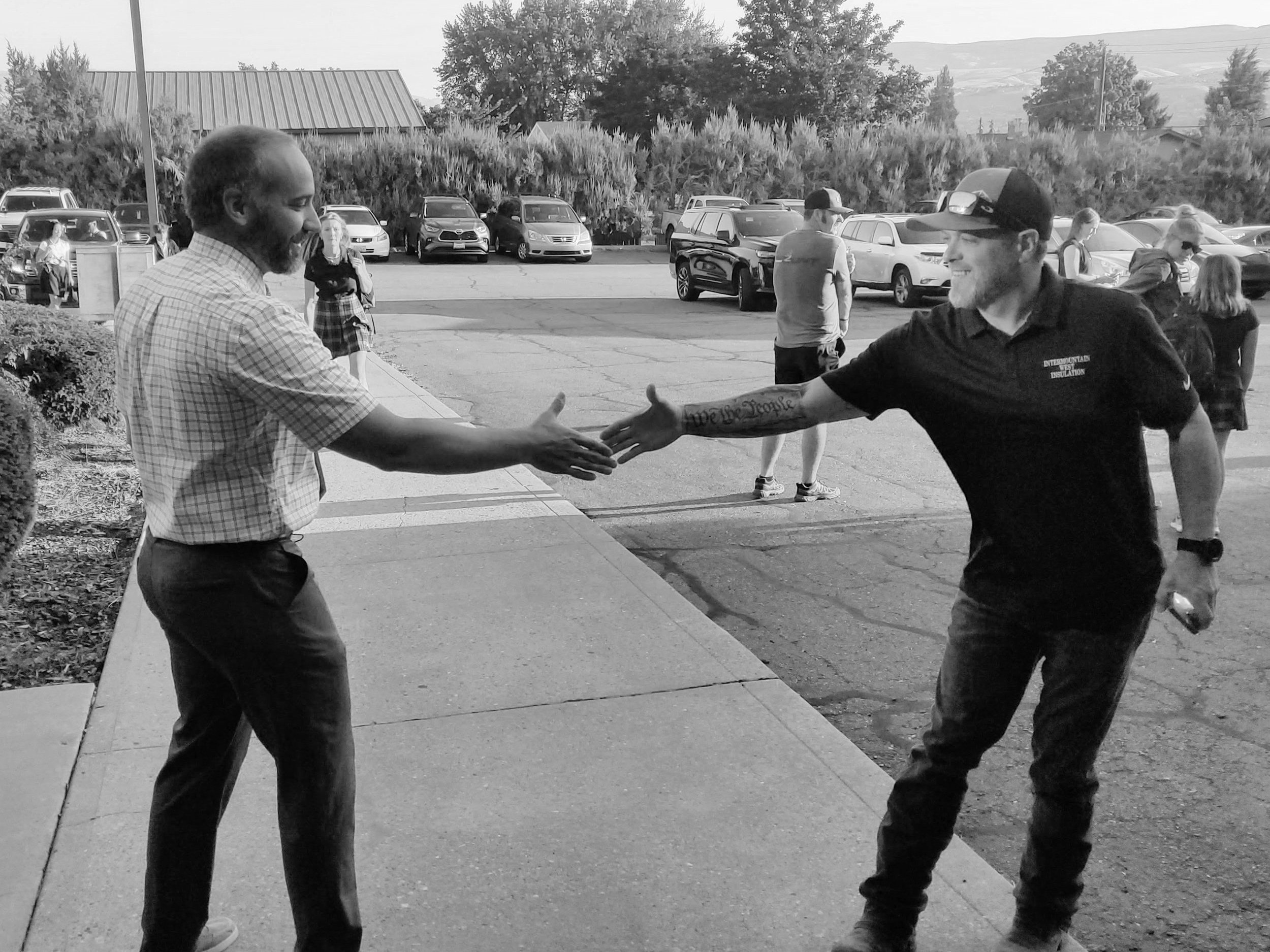At our classical Christian school, we embrace classical, Christian, joyful, and relational values. One unique aspect of our curriculum is the emphasis we place on public speaking, starting as early as 1st grade. Public speaking in our curriculum is not merely about eloquence; it is about equipping our students to proclaim the Gospel and speak truth in love. As Saint Augustine once said, "The truth is like a lion; you don’t have to defend it. Let it loose; it will defend itself." By teaching our students to communicate effectively, we are empowering them to be courageous witnesses of their faith, standing firm in their convictions and defending their ideas with grace and humility. By starting in 1st grade, our lion cubs can begin to find their roars.
This foundational element prepares our students not only for their senior thesis projects but also for a lifetime of confident and meaningful public expression. We aren't just teaching our students to recite lines; we're teaching them to find their voices. We're training them to be vir bonus dicendi peritus–good people who speak well–as Quintilian would say. And we begin in first grade because we want to instill this confidence early.
By introducing public speaking at a young age, we are nurturing these essential skills, ensuring our students can effectively communicate their ideas, passions, and beliefs. They discover that they aren't alone in their passions, their ideas, their fears. Public speaking helps students discover and develop these gifts, fostering self-confidence and self-assurance. As Solomon instructs, "Train up a child in the way he should go; even when he is old he will not depart from it" (English Standard Version, Proverbs 22.6). By instilling confidence in our students from an early age, we are equipping them with the skills needed to navigate life's challenges and opportunities.
And let's be honest, speech meets aren't just about winning trophies. They're about learning to articulate truth, to persuade with grace, to connect with an audience. They're about honing the ethos, pathos, and logos that the Apostle Paul used on the Areopagus and his epistles.
Speech meet and speaking from a young age also instills a sense of grit. It is hard work to memorize and recite lines, let alone doing it publicly. I bet there were some late nights, some blood, sweat, and tears along the way to preparing for that moment in front of the class. It’s entirely possible that some lines were forgotten or stumbled over. But learning to overcome those struggles, powering through the mis-remembered recitations, is part of the point. We do hard things in this world, and getting back up and dusting off our knees when we fall is half the battle.
Lastly, the practice of public speaking fosters a joyful and relational learning environment. Students support and encourage one another, celebrating each other's achievements. This sense of community is vital to their development as compassionate and empathetic individuals, ready to make a positive impact on the world around them. Just as Lewis and Tolkien found a "circle of Christian friends by a good fire," we want our students to find their own circles of support, their own opportunities to speak truth and build community.
By introducing public speaking in 1st grade, we are preparing our students for academic success and instilling in them the confidence, character, and communication skills needed to lead and serve effectively in their future endeavors. This commitment to classical, Christian, joyful, and relational education ensures that our students are well-equipped to proclaim the Gospel, speak truth, and engage thoughtfully in the world around them.
So, when you see our first-graders stepping up to the microphone, remember that they're not just reciting lines they’ve painstakingly memorized. They’re lion cubs readying their roars. They're taking the first steps on a journey that will shape them into confident, articulate, and impactful young men and women. They're learning to find their voices, and to use them for good. And that’s a journey worth taking.





